There are few adventure tourism activities that provide as much up-close and personal experience over as wide an area as long-distance road cycling. When traveling by air, only big towns are witnessed; by car everything is a blur; but by bicycle, all the sights, sounds, and smells can be experienced, and there are many more opportunities to interact with the local people. This allows getting to know the country at a much faster pace.
An enjoyable time can be had cycling around Addis Abeba, if the heavy-sulfur diesel exhaust can be tolerated. (It’s better on Sunday morning, at least.) But, to really get away from it all, a loop including Addis Abeba, Bahir Dar, and Weldiya (with a mandatory detour to the truly astounding Lalibela) is the experience of a lifetime. With towns spaced 25km to 50km apart, finding accommodation (while sometimes settling for less than desirable conditions in the smaller towns) should never be a problem. Keep in mind that, due to degraded roads in places and, much more so, the extreme altitude, daily mileage will be reduced compared to cycling in many other countries.
One big decision is whether or not to have a support vehicle. While this greatly increases the cost of a trip, it is quite a relief to jump into a vehicle for the detour to La-libela rather than trying to cycle there. The 65km gravel road (one way) starts at nearly 3,000m and descends nearly 1,000m to cross a deep, dry valley before rising back up to over 2,600m at Lalibela. The driver of a hired vehicle can also act as a guide, interpreter, or negotiator. If a vehicle is brought for emergencies, it may not end up being used, but that would be a good thing, anyway. Finally, it is also nice to use a vehicle for carrying belongings.
Alternatively, public transportation can be used when a break from cycling is needed. But this may involve long waits and require storing cycles on the roof of old buses (along with all sorts of other unimaginable junk from other riders, including animals). The buses are not only sometimes infrequent but also often slow. The seats are cramped and the air is hot, dusty, and often smelly.
Since finding good enough cycles to rent for a long enough time would be very difficult in Addis Abeba or elsewhere in Ethiopia, it is essential to bring cycles from outside Ethiopia. But, the newer the cycle looks, the more likely customs is to want to tax it. However, documents proving the plans for which it is to be used can help a lot.
The following is a brief description of the route from Addis Abeba to Weldiya to Bahir Dar and back. This counterclockwise course can also be completed in reverse. In this case, the climbs described will instead be descents and vice versa.
The 130km from Addis Abeba to Debre Berhan is on good, paved road that gradually slants uphill with some undulations through fertile farmland. Already with noticeably cooler temperatures at Debre Berhan, the road makes a tough climb up to about the height of the tallest mountains around Addis Abeba (over 3200m) in order to cross Tarmaber Pass over to the east side of the Mezazo Escarpment that forms the border between the Ethiopian Highlands and the Rift Valley here. Debre Sina is 50km past Debre Berhan along this route and downhill from the pass. Ataye is at a lower elevation still and 125km north of Debre Berhan. While this may be a good distance for one day of riding and there are hotels here, it is a much smaller town than Debre Berhan, so don’t expect much accommodation choice.
The larger industrial town of Kombolcha is 110km beyond Ataye and also in the flatlands at only 1,900m in elevation. After this, the road returns to the highlands. The large town of Dessie at 2,500m requires a steep uphill climb for 20 to 30km, depending on which route is taken. The westernmost route is the shortest, as it cuts the corner. If tired from cycling to Kombolcha, don’t push it thinking that Dessie is close at hand. This part of the trip is arduous.
From Dessie, Weldiya is a decent 120km, but this includes a lot of elevation changes, before ending at 2,100m. To break it up, stay in Wichale, which is right at the midpoint. Weldiya is also where Route 1 must be abandoned before it heads north through a gorge. This is done in order to get to Bahir Dar to the west. Heading west on China Road (so named because it was built by a Chinese company), the newer asphalt road goes to the end of a valley before making the most grueling ascent to over 3,000m. Gashena is 110km from Weldiya on this nicely paved road. This is the point where almost everyone takes a detour north to Lalibela, which is at the end of the aforementioned 65km gravel road. Once back to Gashena, Nefas Mewcha is a short 70km west, and Debre Tabor is another 70km beyond that (if 140km is not too much for one day).
The good thing is that these sections have less elevation change, as they follow the tops of 3,000m ridges and plateaus before heading down to Debre Tabor at 2,500m, and they are part of the same good road from Weldiya. From Debre Tabor to Bahir Dar, it is a good 100km, mostly either downhill or flat on good asphalt. However, upon turning south on Route 3, expect more traffic.
After taking some time to visit the island monasteries of Lake T’ana from Bahir Dar, head south to Injibara. The 115km distance is on a smooth road through rolling hills. From Injibara to Debre Markos, it is a full 140km, which might be too difficult for some riders, though it is on good road. Another option is to cycle to Amanuel, 115km away, and then 95km more, the next day, past Debre Markos to Dejen. Beware that the road between Debre Markos and Dejen has some gravel sections. If coming from Debre Markos, Goha Tsion is 110km away, but this includes crossing the Abay (Blue Nile) Gorge at the end.
While the road was recently paved from Addis Abeba to Dejen, much of it in the gorge has succumbed to rock and mudslides and is now gravel again, so this would be a difficult ride. If staying in Dejen, on the western edge of the gorge, it is only 45km to Goha Tsion on the other side, which is much more manageable. Still, due to the condition and grade of the road, which requires mountain bike tires, it might be a good idea to skip this section by taking motor vehicle transport. After a grueling day through the gorge, take it easy by cycling only 70km from Goha Tsion to Fiche. The last day is 115km back to Addis Abeba.

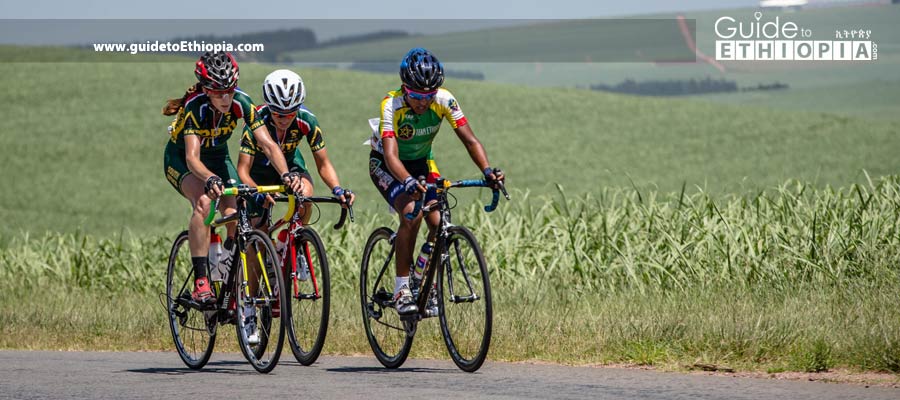
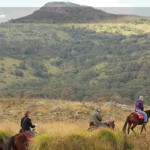
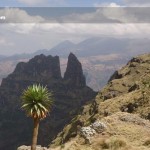
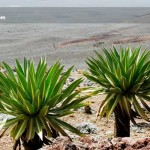
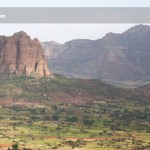



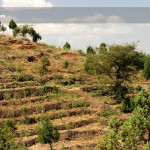
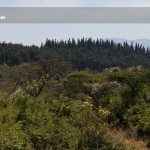
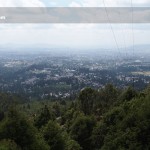
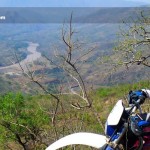


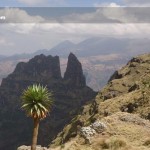
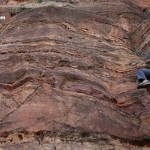
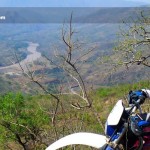

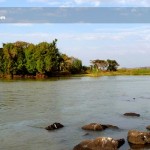
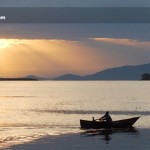
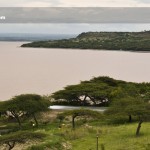
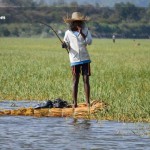

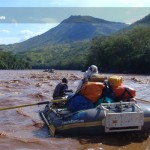





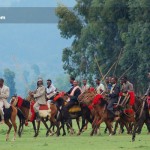
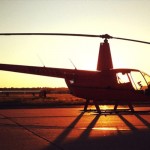
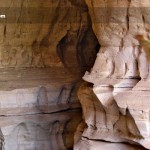


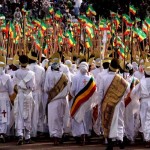
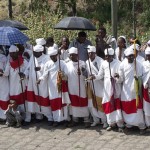
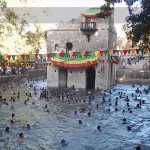
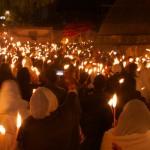
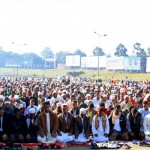


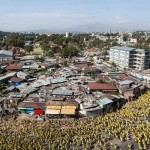
Recent Comments